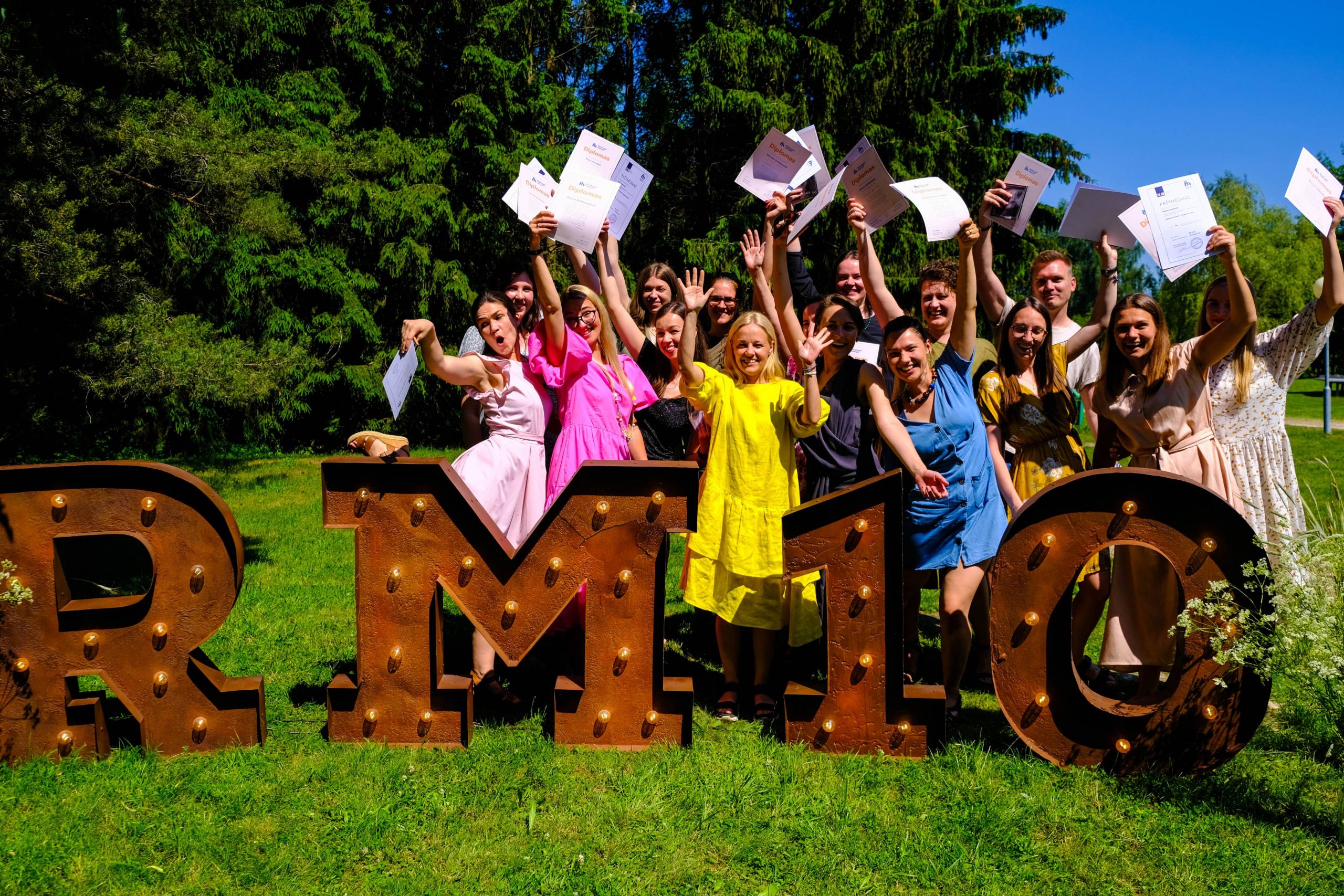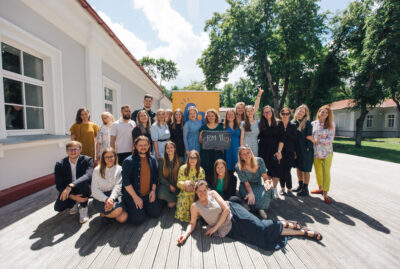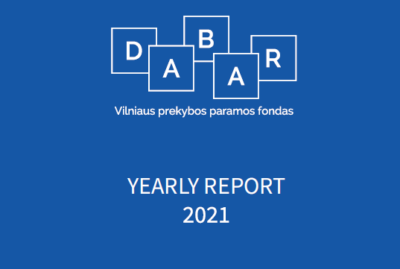
This year, the 10th generation of participants in ”I choose to teach” is completing the programme, during which they spent two years working as teachers at different schools across Lithuania and implementing change projects together with the entire school community. Once the programme is over, all of the teachers of this generation, having established themselves and discovered their vocation, will continue to work at Lithuanian schools and pursue positive changes in education. When asked about what changes we need in education, the teachers were frank – our main challenge is building a strong educational community with a clear structure and values.
Let teachers create
Naglis Jonuška, an economics teacher and ”I choose to teach” participant, says that in education, he feels the absence of a sustainable structure that would allow teachers to turn the theoretical knowledge they have accumulated into real work that takes our education forward.
“There has never been as much research and analyses done (and under way) on education sciences, student development, the importance of competencies, effective education, special needs, and so on as there is now. The theoretical wealth of knowledge in the world is enormous and only expanding, while pupils’ abilities seem only to be shrinking. This is happening because there is no sustainable structure that can realise the theory and bright ideas,” says the teacher candidly.
According to him, teachers have enormous potential to create and realise the ideas they have, but they are often hampered by excessive administrative work, which takes up the bulk of their working hours. Therefore, providing assistance to teachers is crucial if we want to help them not only fill out their log books, but also find ways to engage their pupils.
“For change to take place and education to progress, teachers need real assistance. In order for teachers to be able to focus on quality and actually implement innovation, they must be relieved of administrative burden. Just like a professional basketball team is managed by a coaching staff led by the head coach, the teacher – the leader – must also be given a staff, i.e. a team. A teacher should have assistants who have administrative level responsibilities which don’t require higher education and several years of work experience,” says Mr Jonuška.
As Mr Jonuška says himself, this is not unattainable – in other areas, this has long worked well and has become common practice. A surgeon has several assistants and nurses in the operating room, the head of a business has vice presidents, assistants and an administrator, and a family member has helpers. A teacher also needs people who can help, assist and learn from their leader so that after a while, they can become teachers themselves and lead a new team forward.
Diversity of people – a problem or a value?
For some time now, the priority of the education policy has been declared as being the application of inclusive education practices. This is fantastic – after all, every child is different, and inclusive education helps notice and respond to the needs of each one. However, teachers are apprehensive – what has to be done so that this is not just a declarative statement, but actually works? Kornelija Čepytė, a civics teacher and ”I choose to teach” participant, has noticed that so far, there is not enough talk in education about people’s diversity as a value, and internships at schools do not correspond to what inclusive education is really about.
“Without this, inclusive education and schools that are open to everyone are just nice words. Many educational internships are still focused on meeting certain standards and training certain people. Often, the diversity of people, their opinions and lives is only tolerated rather than being understood as a strength that special things can be built on. Even in the programmes themselves, very little attention is given to recognising and understanding the social and cultural ‘other’,” says Ms Čepytė.
Another programme participant, French teacher Milda Klimaitytė, supports this idea and adds that there is still a lack of equal opportunities for every child at schools.
“I think we are still missing a level playing field for pupils from different social backgrounds or with special educational needs. Pupils should never feel alienated or excluded because of the conditions necessary for quality learning; unfortunately, I still notice this sort of exclusion at schools,” says Ms Klimaitytė.
Speaking about ways to solve this, Ms Čepytė mentions that here, global community agreement is the basis for further actions, without which it can be extremely difficult to achieve the real application of inclusive education.
A vision that engages every child
Each of us could probably add something to this list of insights, but head of the ”I choose to teach” programme Agnė Motiejūnė urges looking for something positive and finding the motivation to continue pursuing better and better education for our children. She argues that the driving force for change is still a strong community with clear values that it follows in its daily work.
“As a programme, we have been operating for 12 years, and based on my experience with Teach First Lithuania, I can confidently say what creates the biggest change enabling all children to unleash their potential at school, regardless of their social, cultural or economic status – it is community leadership that embraces differences as values and has a strong (not just on paper) vision of engaging each and every child,” says the programme head.
Ms Motiejūnė also adds that there is no one simple recipe for reducing achievement gaps and exclusion among pupils, as it is an overly complex mechanism that goes beyond the field of education. However, it is people who are the main resource for real changes in education.
“People who believe in every child, who don’t split children up into ‘good’ and ‘bad’, and who have the tools necessary to help each child show their abilities are what make me want to invite us all to focus and bring more and more people like that into education. These people, who are strong in values, are the ones we select for the ”I choose to teach” programme, and we can see how they, with their enthusiasm, bring communities together in the schools where they work, and what changes come about there. This inspires us to believe in our vision and spread the message that these people can help create a real breakthrough in education,” says Ms Motiejūnė.



